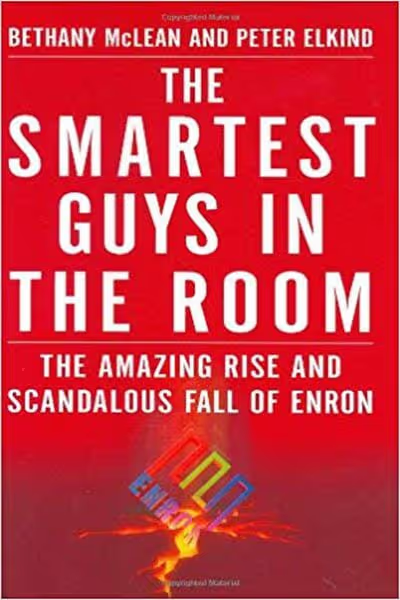
I recently discovered Mary Laura Philpott’s writing when I picked up her best-selling essay collection I Miss You When I Blink last spring. I really identified with her frank descriptions of everyday occurrences, all laced through with stellar observations and a keen eye for detail. Her latest venture, Bomb Shelter picks up right where she left off from Blink. These essays, however, look more closely at love and family, loss and grief. How do we cope in the face of difficulty? Of tragedy? How do we find meaning in the everyday? She weaves all this together through the lens of her son’s diagnosis of a seizure disorder and how it has affected their lives.
The jacket copy informs us of how Philpott “returns in her distinctive voice to illuminate how it feels to move through life with a soul made of equal parts anxiety and optimism.” The physical book itself offers a bit of this dichotomy. A rosy, pink cover offset with a photograph of a turtle; its markings etched in vivid detail as it forces its head upright. The title Bomb Shelter, formatted in a vivid yellow that seems to leap off the page, hints at both the warning and the hopefulness that lie within.
In one of the first essays, Hello from Upside Down, Philpott writes about a moment lying on the floor of her living room during the Christmas season. She reminisces about previous holidays as she gazes at her tree from the prone position brought about by a significant back injury. She muses about the weight and impact of memories and choices while in her current state. Not just the back injury that has laid her flat, but the overwhelming depth of gratitude and fear that she feels. How will she hold onto what she has? How will she keep her family safe in the light of all that is going on in the world?
In Turtles, Turtles, Turtles, Philpott marvels at the wildlife that see fit to call her neighborhood home. She and her family live in Nashville, Tennessee, in an area filled with woods and parks. They are delighted when turtles seem to adopt their home and wander by again and again. Named Frank and Fancy, Philpott tries to rationalize their frequent appearances through her yard, and sometimes to her back door to knock against the wood. Are they looking for food? Shelter? Or is it something more? Philpott admits to a search for meaning in their persistence and wonders if they ultimately have any ulterior motives after all.
Philpott offers an olive branch in To the Woman Screaming on the Quad. She recounts a story told by their guide on a tour of a college campus: an unknown woman, caught screaming at her teenager, in plain sight of everyone as the tour wound through the grounds. At the horror of the witnesses, at the glee of the guide in recanting the tale. But, Philpott reckons, haven’t we all been in a similar situation? Found ourselves at a point in time that we weren’t at our best or that we fervently wish we could take back? She hopes that this unknown woman, wherever she is, has forgiven herself. She hopes that she won’t even recognize herself in the retelling.
The author’s fondness for humanity shines through in her prose. I found myself nodding along at her description of being caught off guard by a rude comment from a stranger, then ruminating for hours about what she should have said. I found myself tearing up when she described how her daughter had waited in her room the night that her brother’s seizures started: she had waited to be told that it was okay to come out. How Philpott and her husband told her daughter that she “did not owe anyone her silence or her stillness” for anything, at any time. How true that message rings for many of us today.
In these essays, Mary Laura Philpott writes beautifully of all the things that make us human, all those things that delight us and horrify us. All those things that wake us in the dark of the night and make us want to jump for joy in the light of day. Philpott knows how to connect with her readers and made this one, especially, feel very seen.
I recommend reading her work in short stints, one essay at a time a day or so apart. I found that her words were best enjoyed with a cup of my favorite coffee every morning; this offered a perfect start to the day. My copy of Bomb Shelter, now dogeared and highlighted with my favorite passages, rests within easy reach of my nightstand. I think of these words often: “We take care of who we can and what we can, near and far, because that’s the job. That is life.” I think of these words and the importance of tending to those I love, in all the big and little ways possible. This is life, after all.
Better to believe the world is at least half-full of decent intentions than to focus on how it’s also half-full of assholes.
A lifelong worrier, Philpott always kept an eye out for danger, a habit that only intensified when she became a parent. But she looked on the bright side, too, believing that as long as she cared enough, she could keep her loved ones safe.
Then, in the dark of one quiet, pre-dawn morning, she woke abruptly to a terrible sound—and found her teenage son unconscious on the floor. In the aftermath of a crisis that darkened her signature sunny spirit, she wondered: If this happened, what else could happen? And how do any of us keep going when we can’t know for sure what’s coming next?
Leave it to the writer whose critically acclaimed debut had us “laughing and crying on the same page” (NPR) to illuminate what it means to move through life with a soul made of equal parts anxiety and optimism (and while she’s at it, to ponder the mysteries of backyard turtles and the challenges of spatchcocking a turkey).
Hailed by The Washington Post as “Nora Ephron, Erma Bombeck, Jean Kerr, and Laurie Colwin all rolled into one,” Philpott returns in her distinctive voice to explore our protective instincts, the ways we continue to grow up long after we’re grown, and the limits—both tragic and hilarious—of the human body and mind.
Mary Laura Philpott is a writer and essayist who has been featured frequently by the New York Times. Her work has also appeared in the Washington Post, the Atlantic, the Paris Review, O the Oprah Magazine, Garden & Gun, and Real Simple. Philpott has also worked as a bookseller and interview host through Nashville Public Television.


%20(1).avif)




.avif)


.webp)








































